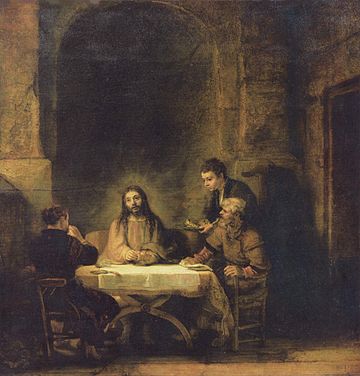Merry Christmas to all this day!
Light and fog are having morning-long conversation over the surface of Job’s Pond this morning. Directly across the water there is a rounding of the land where it presses out toward the water. There, every morning, there seems more light than elsewhere. The light appears to congregate there.

(Job’s Pond, Portland CT 12/25/15)
It is, perhaps, a ‘thin place,’as the Celts would describe it. As travel writer Eric Weiner described his recognition of such places in a New York Times piece in 2012, “They are locales where the distance between heaven and earth collapses and we’re able to catch glimpses of the divine, or the transcendent or, as I like to think of it, the Infinite Whatever” (March 9, 2012 Where Heaven and Earth Come Closer).
Weiner on finding ‘thin places’ around the world.
Whatever one might call it, I am blessed to look out directly at such a place as the light is reborn each morning I am here. And today, today is such a thin place as well, a thin moment? Christmas Day is a thin memory of a time and place long ago whose import for every other time and place cannot be overstated, nor over-sung, nor over-felt (though I will not rule out over-thinking or over-preaching :-).
The preacher I heard last night* made a point that is saving and true. We do an awful lot to ‘prepare’ for Christmas. We all know what those various activities are. There is never enough time to do them all, and at last we collapse into the day, this day, itself. Among the most laudable things many of us do is to give. We give to charities. We give to relief organizations. We give to churches. We give to one another. All this we do, and rightly so the preacher noted, to honor the Christ.
But there is something amiss even within this best of what we do. Ultimately this thin place is about receiving first of all. Before anything can be given, we must receive. As the old theological dictum has it, “Nemo dat quod non habet” | “No one can give what they do not have.” And what we receive is not given by human hands or mind or heart. What we receive at this thin place comes directly from the hand and heart and mind and will of God, from the Center of all that is, from the beating Heart of Love that is what is. Yes, it comes by the cooperation and the courage, the faith and the openness of a young woman. Praise God for her.

(Painting of Baby Jesus nursing from Mary in the Milk Grotto in Bethlehem)
But there would be nothing to accept, nothing to receive, were it not for the initiative of the Divine. “All is grace,” murmurs Bernanos’ Country Priest as he breathes his last. Therese of Lisieux’ last words were “Grace is everywhere.” But that doesn’t mean any of this is easy. It does mean that at any and every moment, at the thinnest places and the ‘thickest’ as well, all that is needed is being provided.
Quite often we need to redistribute what is received, as the food doesn’t often come first to the plate of the hungriest, nor the saving therapy first to the body of the one whose health insurance is inadequate. But still, enough is given freely, in profligate fashion, at every moment this old universe rolls on. We have enough.
Not only in preparation for Christmas Day, but across our majority culture, this at first apparently comforting truth is an affront and a challenge. We speak and act and work and run for office as if there were no grace at all, as if all things were done by our hands. As if we can accomplish whatever we will.
We establish borders so that, if there might be grace after all, we can receive it here and prevent its flowing over to ‘them.’ We strengthen those borders to render a clear boundary as to who is deserving of whatever gifts might be received, if any there are. We send bombs and missiles and ships and drones to accomplish our will far away. Even in terms of violence we are too busy giving to ever imagine that we are sowing the seeds of violence to be received as well.
This Day, as comfortable as we have rendered its point of arrival, is meant to be a point of departure. Every year on this Day, as we stand on the brink of the year’s ending and beginning we need a radical restart. We need a rebirth. And every year the need becomes more painfully clear.
Our instinct, if we accept that assertion, is to begin to plan how we will begin again. And again, we have missed the point. The beginning point is not to begin again to do. The beginning is to be. The beginning is to receive. The beginning is to accept the gift of rebirth on this day of birth. The beginning is to let go of what we have believed we ‘know,’ and to open to the possibility of knowing something else. Something ever old and every new. Something hidden in plain sight in the Gospels. Pick up one of them (Mark is a quick read!) and let it enter you tonight in the waning hours of this Christmas Day, as if you had never heard it before.
This is as real, or moreso, than the campaign for the presidency or the latest efforts to protect ourselves from terror or anything else the news cycle will bring us even today. Once you look for it, you see it and hear it everywhere. One example came last week in the words of Martin Sheen in conversation with Krista Tippett at “On Being.” Deep into their dialogue, when the heart of the matter in his life and faith is revealed as love, as community, as belonging, he speaks these words:
It’s like giving back. But just that embrace — it is so overwhelming, at times, this reality of loving because one is loved that it just brings you up short. You just sit and stare sometimes into a vacuum and say, where did this come from, and why is it so clear, and why is it so simple, and so powerful? And one of the great mysteries that I experience at mass is the reception at communion. How do we embrace that? How can we possibly, consciously understand what that is? And I don’t have a clue. I just stand on line and say, “I’m Ramón, called Martin, your friend, you’re welcome here. And I’m with them.” [laughs] Whoever the crowd is, I’m getting on line with, you just look at the people who are on that line, that community, that is the greatest and simplest expression of overtly trying to explain this mystery I’m talking about, because it is a mystery. It is probably the most profound mystery in all of the universe, this love. Sometimes I’m overwhelmed just watching people on line to embrace that sacrament. It is the most profound thing. I never ever can get over it. It’s just something you have to surrender to. And just saying yeah, I’m with them. That’s the community of saints.
They are on line, together, to receive. To receive first, so that later, transformed over a lifetime of Christmas Days, changed by their travel past thin places throughout life’s geography, they may finally give.
And even then, the only gift to give is grace. Pass it on. Pass on the invitation.
“All Is Grace,” by Shaun Groves, from Third World Symphony
- At Trinity Episcopal Church, Hartford CT


